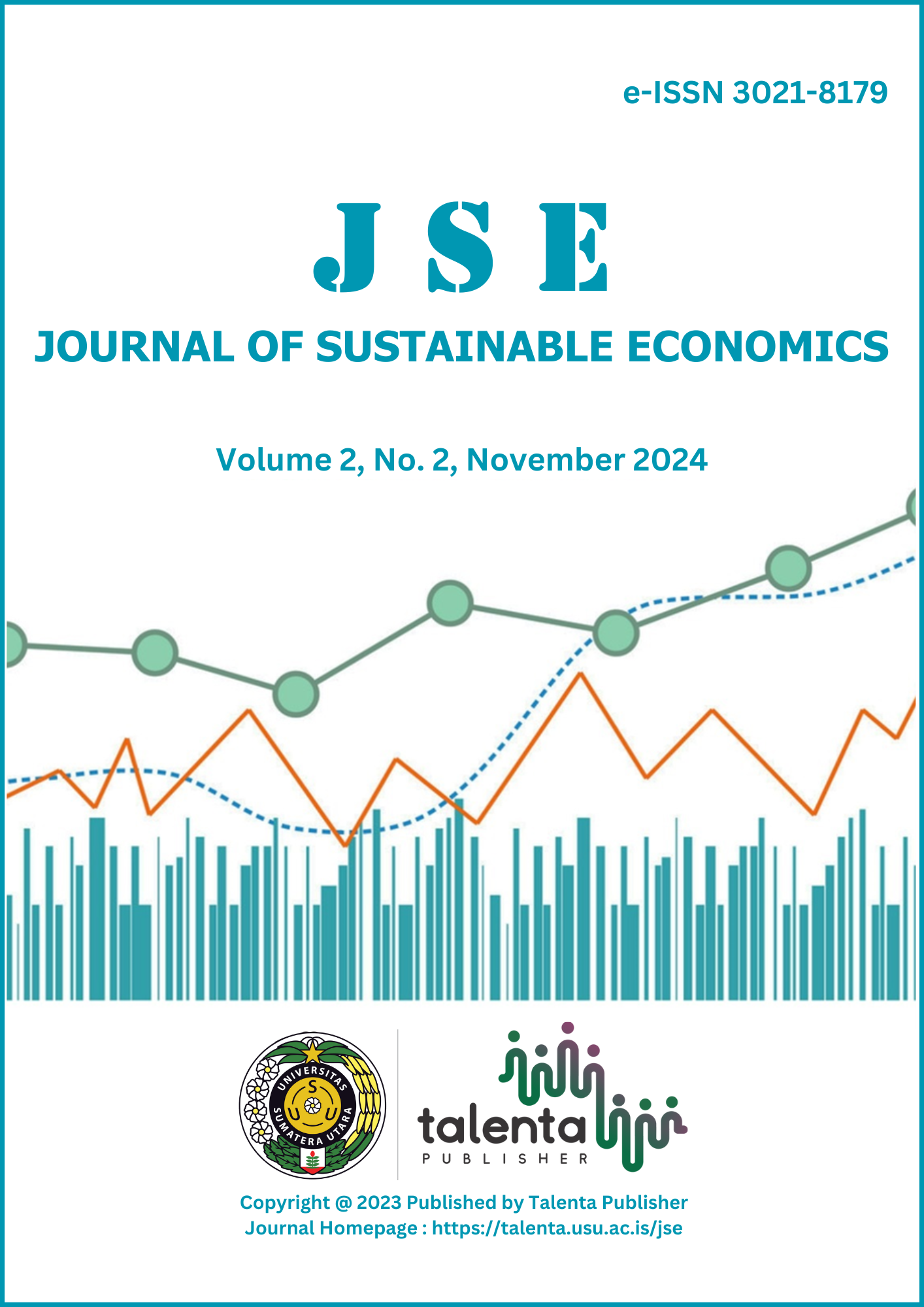Sustainability of Islamic Bank Financing across Macroeconomic and Internal Factors
DOI:
https://doi.org/10.32734/jse.v2i2.18433Keywords:
Sustainability, Financial Risk, ARDL, MacroeconomicAbstract
The sustainability of Islamic banking financing can be evaluated by examining the dynamics of financing risk, as an escalation in financing risk may lead to significant losses for banks. This study aims to investigate the long-term and short-term effects of internal factors and macroeconomic conditions on the financing risk encountered by Islamic banks in Indonesia. This study utilizes quarterly time series data from 2015 to 2023, with Financing Risk as the endogenous variable and Macroeconomics, Capital, Efficiency, and Bank Performance as the exogenous factors. This study utilizes Autoregressive Distributed Lag (ARDL) analysis technique. The results indicate that, over the long term, internal factors such as capital, efficiency, and performance substantially affect financing risk. Capital exerts a detrimental influence, although both efficiency and the performance of Islamic banks positively affect financing risk. In contrast, macroeconomic factors are found to exert no substantial influence on financing risk. In the short term, capital and efficiency exert considerable effects, with capital adversely influencing financing risk and efficiency favorably improving it. The performance of Islamic banks does not substantially influence financing risk throughout this period. Macroeconomic conditions are observed to positively affect financing risk. This study's conclusions offer significant insights for analysts of Islamic banking risk, facilitating educated short-term and long-term decision-making to more effectively predict variations in financing risks.
Downloads
Downloads
Published
How to Cite
Issue
Section
License
Copyright (c) 2024 Journal of Sustainable Economics

This work is licensed under a Creative Commons Attribution-ShareAlike 4.0 International License.













